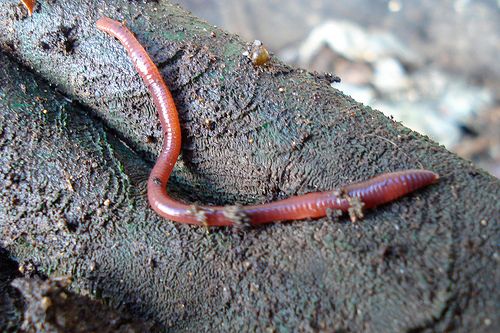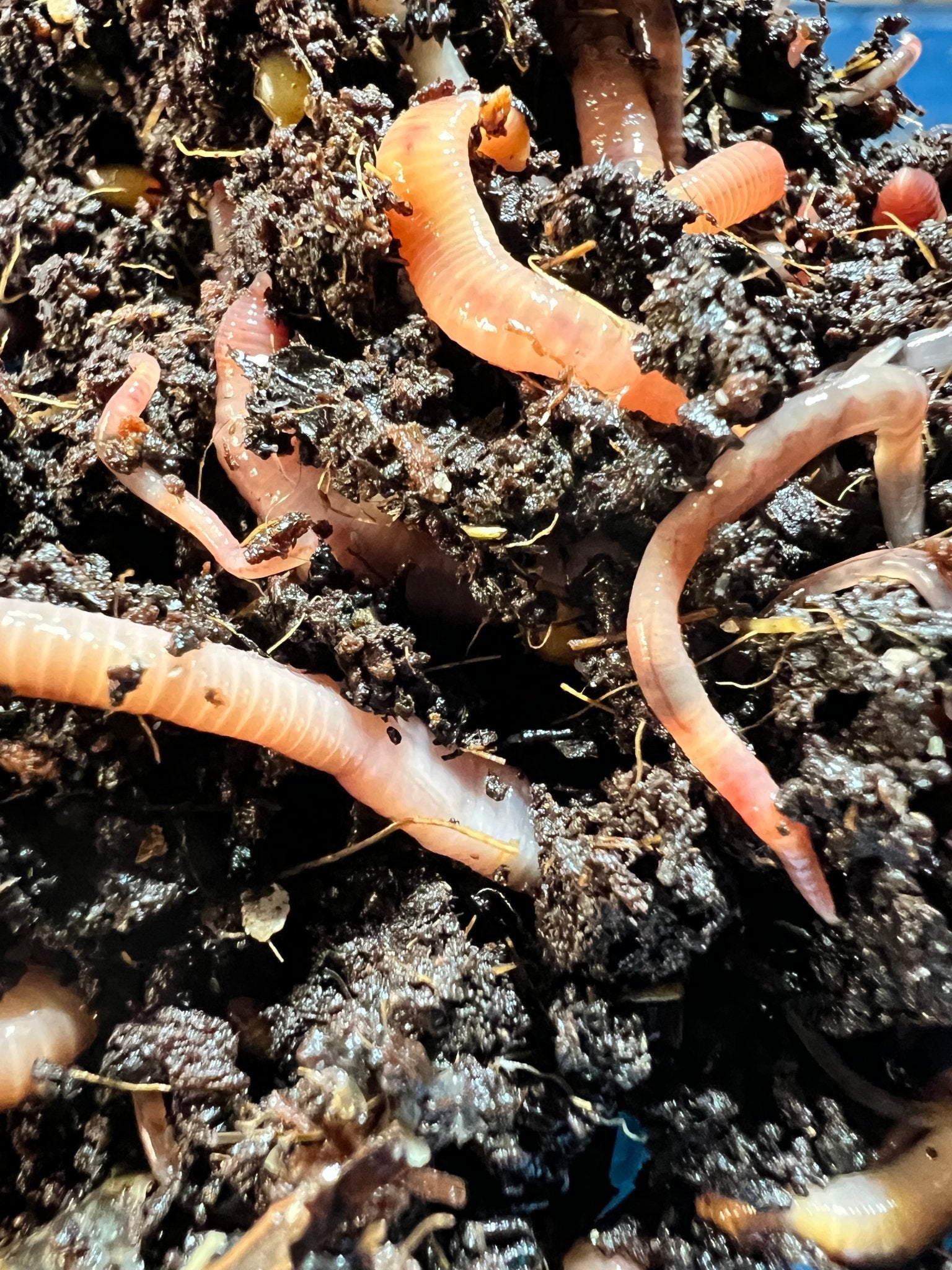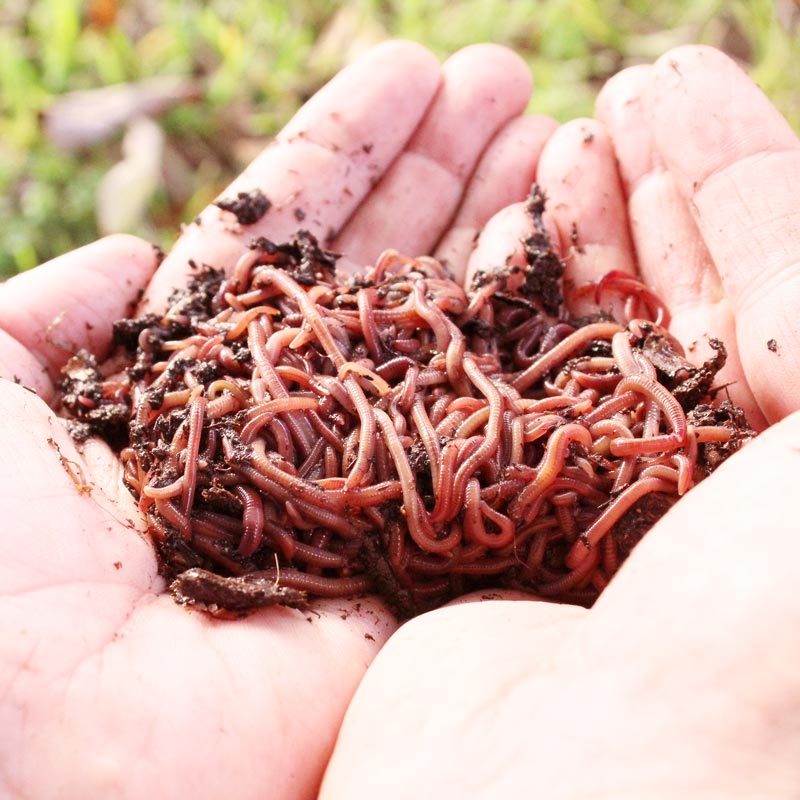Why Choose Red Wiggler Express for Reliable and Affordable Fishing Bait?
Why Choose Red Wiggler Express for Reliable and Affordable Fishing Bait?
Blog Article
Red Wigglers 101: Everything You Need to Know for Thriving Gardens
Red wigglers, or Eisenia fetida, play a crucial role in lasting gardening practices, offering as effective decomposers that convert organic waste into useful vermicompost. Comprehending their habitat, dietary preferences, and the myriad benefits they offer can change your horticulture approach (Red Wiggler Express). As these worms grow in particular conditions, their care and monitoring are necessary for maximizing their payments to soil health and wellness. The concern continues to be: what actions can you take to harness the full possibility of these amazing microorganisms in your very own yard?
Understanding Red Wigglers

Red wigglers prosper in environments abundant in natural product and wetness. Red Wiggler Express. They possess a special digestive system that permits them to refine food scraps swiftly, secreting castings that are loaded with crucial nutrients such as nitrogen, phosphorus, and potassium. These spreadings boost dirt framework, boost water retention, and foster beneficial microbial activity, all of which add to durable plant health and wellness
Additionally, red wigglers can survive in diverse problems, making them versatile to numerous gardening methods, consisting of interior and outside composting systems. Their ability to consume big quantities of organic waste everyday settings them as important allies for both home gardeners and business growers. By integrating red wigglers into horticulture efforts, one can dramatically boost dirt fertility and support sustainable gardening techniques.
Suitable Habitat for Red Wigglers
Producing an optimal atmosphere for red wigglers is important for maximizing their composting abilities and total health and wellness. Red wigglers flourish in wet, dark, and well-aerated habitats, which closely resemble their native environments in ground cover and rotting organic issue. A suitable environment ought to provide a temperature variety in between 55 ° F and 77 ° F(13 ° C to 25 ° C), as extreme temperatures can worry or hurt the worms.
The bed linen product, such as shredded newspaper, cardboard, or coconut coir, should be kept wet yet not extremely wet, as too much wetness can result in anaerobic conditions detrimental to worm health and wellness. Additionally, a pH degree between 6.0 and 7.5 is suitable, guaranteeing a well balanced environment.
Correct aeration is similarly vital; it allows for oxygen circulation and prevents the accumulation of harmful gases. A container or bin designed for vermicomposting need to have drain holes to get rid of excess dampness and advertise air flow. Normal tracking of these problems is important for keeping a prospering red wiggler population, ultimately improving their performance in damaging down organic waste and enriching yard dirt.
Dietary Requirements and Preferences

Red wigglers show certain choices; they are especially keen on softer, breaking down materials over harder or even more coarse substances. It is necessary to avoid feeding them citrus peels, onion, and garlic in huge quantities, as these can be harmful. Furthermore, meat, dairy products, and oily foods must be omitted, as they can draw in parasites and produce undesirable odors.
(Granite Falls NC Worms For Sale)To maintain optimal health and wellness, a balanced mix of green and brown materials is advised. Green products, such as vegetable scraps, provide nitrogen, while brownish materials, like cardboard and dried fallen leaves, supply carbon. Monitoring the moisture content and ensuring a constant food supply will additionally enhance their growth and composting abilities. By satisfying their dietary needs, gardeners can foster a flourishing populace of red wigglers in their garden compost systems.
Benefits of Making Use Of Red Wigglers
The amazing advantages of utilizing red wigglers in horticulture prolong much beyond their function in composting. These flexible organisms add considerably to dirt health, boosting vitamins and mineral accessibility and promoting microbial activity. By freshening the soil as they burrow, red wigglers enhance drainage and origin infiltration, creating an ideal environment for plant development.
Furthermore, red wigglers are efficient recyclers of organic waste, converting it into nutrient-rich castings that work as an excellent natural plant food. These castings have beneficial bacteria and vital nutrients, such as nitrogen, phosphorus, and potassium, which are essential for plant development. The slow-moving release of nutrients from worm castings makes sure a consistent supply, minimizing the danger of nutrient leaching and promoting sustainable horticulture practices.
Furthermore, the presence of red wigglers can aid subdue soil-borne plant diseases. Their digestion procedures produce compounds that inhibit unsafe pathogens, therefore boosting plant wellness. Ultimately, using red wigglers fosters a more lasting horticulture approach by minimizing reliance on chemical plant foods and promoting a closed-loop system, where waste is changed right into beneficial sources. Generally, integrating red wigglers right into horticulture techniques provides a plethora of eco-friendly and farming benefits.
(Red Wiggler Express)
Composting With Red Wigglers

To start an effective vermicomposting system, pick an appropriate container with proper ventilation and drainage. The suitable setting for red wigglers consists of a damp, dark setting with temperatures in between 55 ° F and 77 ° F. Begin by layering shredded paper, official source cardboard, and food scraps, ensuring a balanced mix of carbon and nitrogen-rich materials.
Red wigglers flourish on vegetable peels, fruit scraps, coffee premises, and eggshells, while staying clear of meat, dairy products, and oily foods that can attract bugs. On a regular basis keep track of dampness levels; the bed linens needs to perspire yet not soggy. Harvest worm spreadings every couple of months by dividing the worms from the compost, which can then be made use of straight in gardens or saved for later usage.
Implementing vermicomposting not just reduces garbage dump waste yet additionally enriches garden soil, advertising healthy and balanced plant development and sustainable gardening techniques. Accept this environment-friendly approach to improve your horticulture ventures.
Verdict
In recap, red wigglers are important organisms for improving garden performance via reliable composting. Their particular habitat demands, dietary choices, and significant advantages contribute to lasting horticulture practices. By utilizing red wigglers, garden enthusiasts can substantially improve soil quality and nutrient schedule, cultivating much healthier plant growth. Accepting the method of vermicomposting not just sustains waste reduction however also promotes an environmental balance within garden communities, ultimately leading to flourishing and resistant gardens.
Report this page